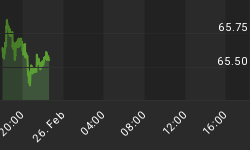Bulls can celebrate the U.S. economy and seeming zero impact (so far) of the U.S.-China trade war, but it’s not necessarily invincibility that’s keep this bull run chugging along—it might be as simple as lack of supply of shares.
Share shrinkage, or a lack of shares being issued, hit negative territory in 2016, then turned a bit more positive last year, but this year, analysts are expecting low to negative supply, Reuters cited JPMorgan as saying.
The heart of the supply-demand issue is that buybacks, cash-funded mergers and acquisitions and company de-listings are shrinking the share pool. Thomson Reuters data shows a poignant comparison: From January 2018 through August 2018, $126 billion in primary listing shares were added to the pool, compared to a potential $1 trillion in buybacks by the end of this year.
It’s simple math, and it means a fight for equities that is helping prop up the bull run.
Reuters quoted Citi strategist Robert Buckland as saying that the U.S. equity pool is shrinking by around 1.5 percent every year.
So, buybacks, then, are buoying the market, and look set to do so for a while.
S&P 500 company buybacks hit a record $190.6 billion in Q2 2018. That’s a nearly 59-percent increase, and indices suggest it’s going to continue.
“Given the record earnings, strong cash-flow, investor demand and corporate statements, the indications are that the high level will continue for the rest of the year,” Business Insider quoted Howard Silverblatt, senior index analyst at S&P Dow Jones Indices, as saying.
This bull run has been going for nine and a half years already, and we’ve seen $4.4 trillion in share buybacks during that period. Related: This Cannabis Giant Just Became Profitable
Home Depot (NYSE:HD) has made over $50.7 billion in share repurchases, while Intel (NASDAQ:INTC) total buybacks have hit $55 billion. Wells Fargo (NYSE:WFC) has bought back $56.4 billion in shares, and JPMorgan itself is on the books for $62.8 billion. Oracle (NYSE:ORCL) has repurchased $67.1 billion in shares … Cisco (NYSE:CSCO), $67.9 billion … Microsoft (NASDAQ:MSFT), $102.8 billion … And, the best for last: Apple (NASDAQ:APPL) has seen a massive $226.6 billion in buybacks.
At the same time, these buybacks are helping companies appear possibly heathier than they are. Essentially, buybacks boost per-share earnings—and investors use this metric to justify a company’s stock price. This potential manipulation is particularly worth noting when it comes in the form of an “Accelerated Share Repurchase” (ASR), which doesn’t gradually take place in the open market; rather, it’s done all at once.
Whatever the motive—it’s working. Even legendary investor Warren Buffett is big on buybacks, having said before that corporate cash is best used in share repurchases.
In an interview with CNBC at the beginning of this month, Buffett said he wasn’t worried at all about the record level the stock market has reached because buybacks—particularly Apple’s—have made owning shares in the company a great set-up.
"I'd rather have it go down for one thing, if it goes down Apple is going to buy a lot of stock back, already buying stock back," Buffett said. "If it goes down 10 percent it means they get to buy 10 percent more shares and my interest will go up 10 percent more for spending that money."
By Fred Dunkley for Safehaven.com
More Top Reads From Safehaven.com:

















